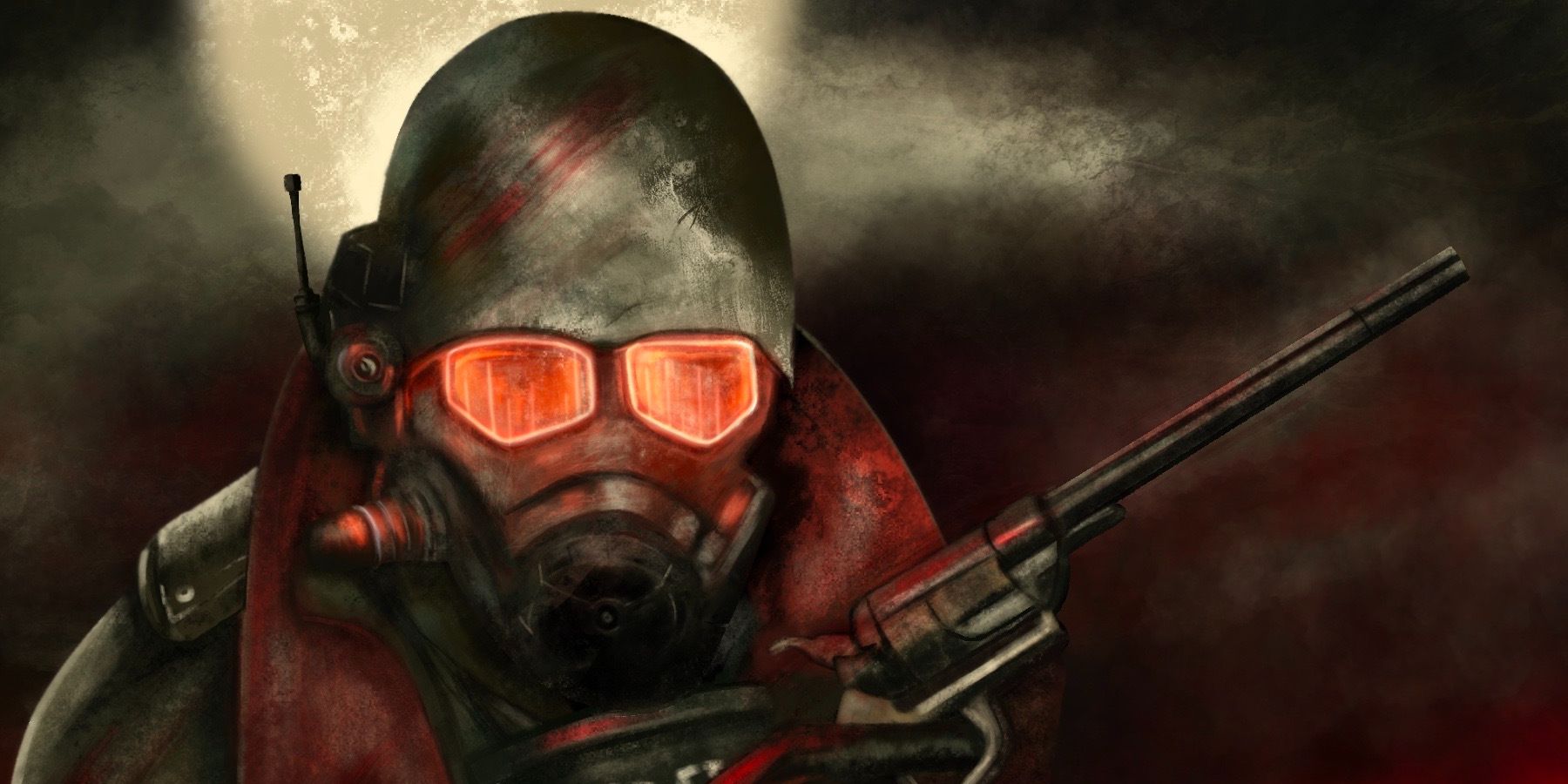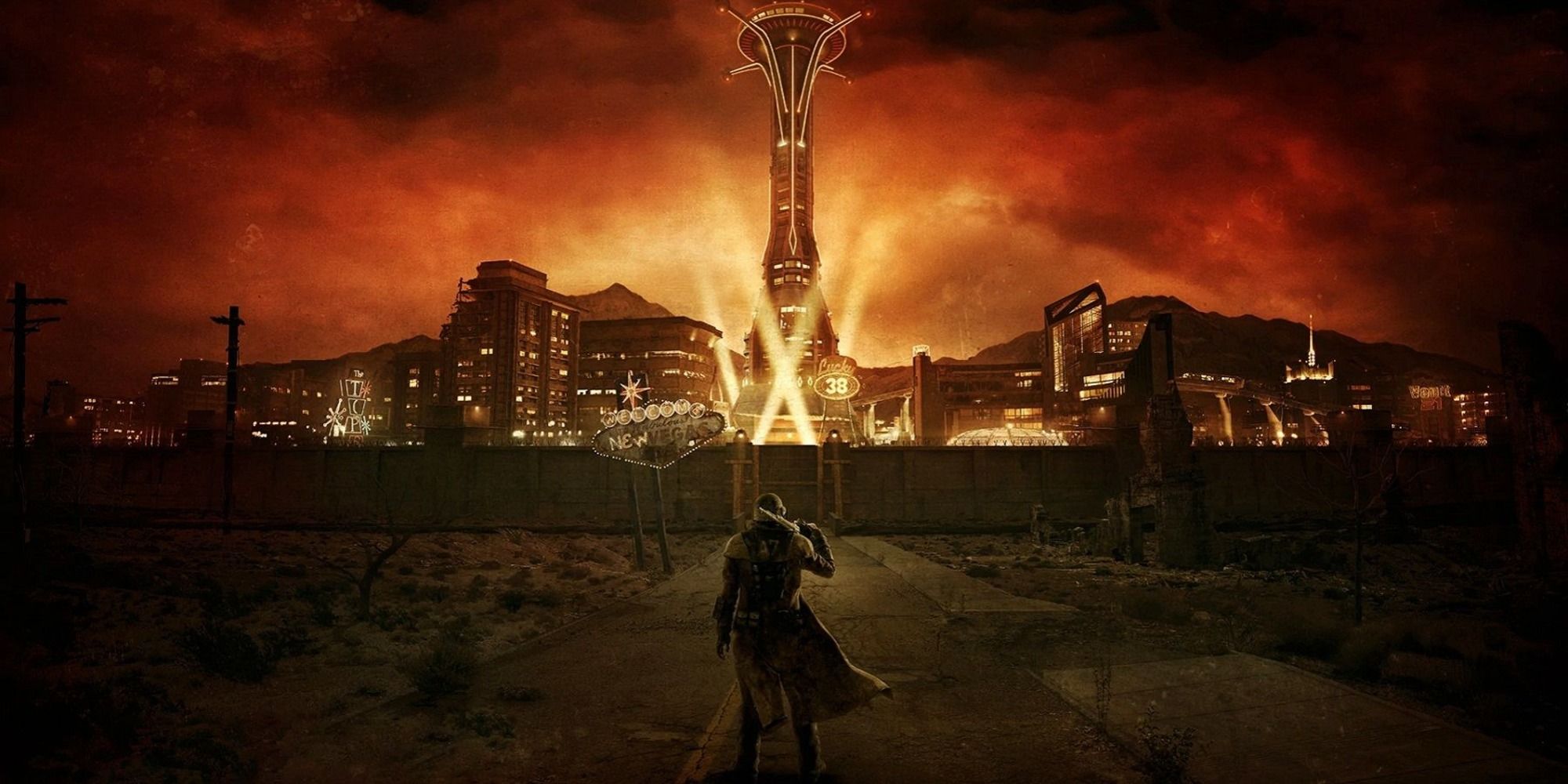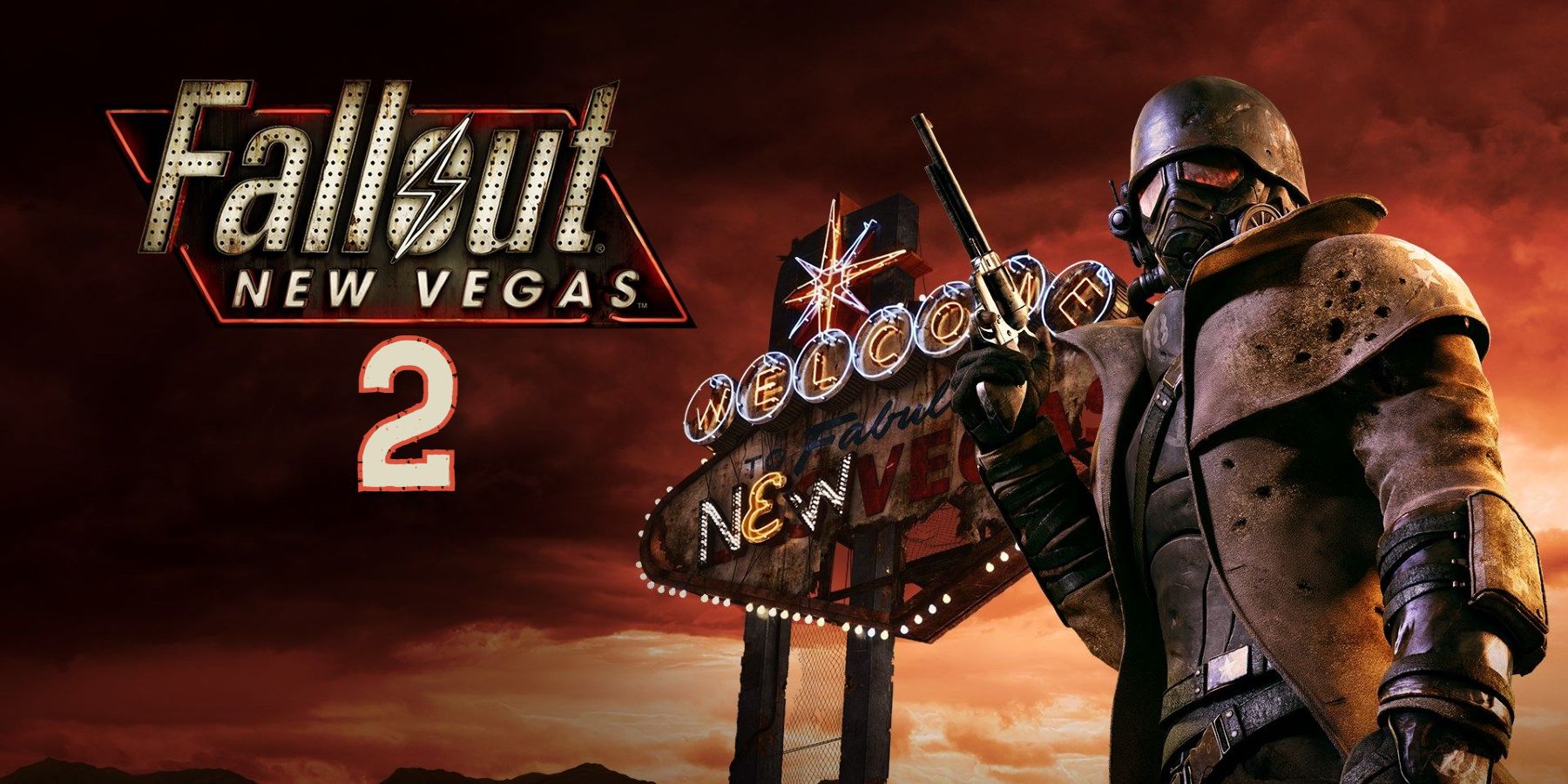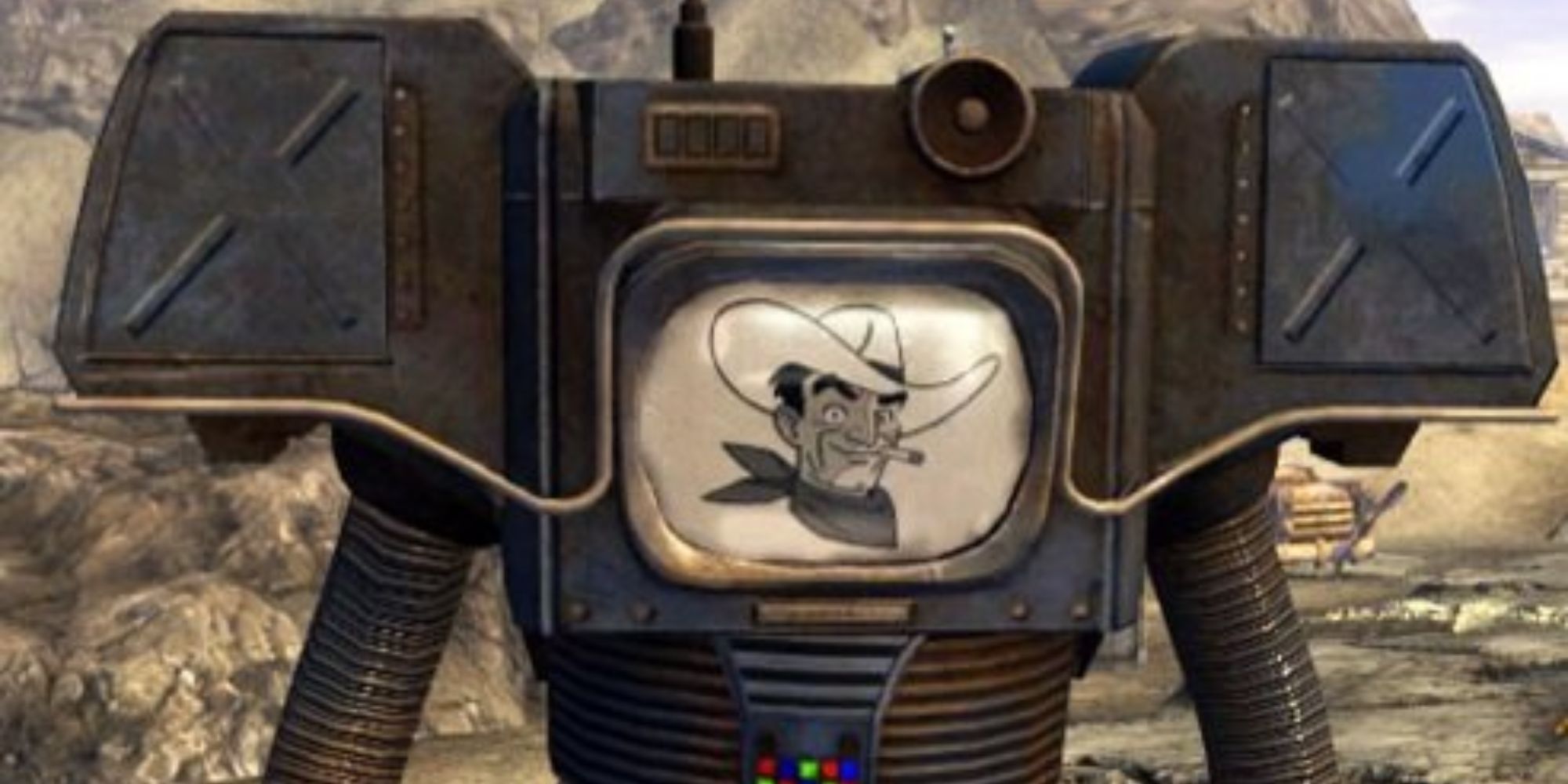Fallout has been a popular franchise in the gaming community for decades, with fans agreeing that Fallout: New Vegas is one of the series' best entries. Featuring a compelling story, classic RPG elements, and impactful choices that matter, Fallout: New Vegas set a high bar for Fallout: New Vegas 2 that many players feel wasn't entirely met with the latest Fallout entry, Fallout 4. While there have been no confirmations on Fallout: New Vegas 2, there are ways that Fallout 4 could affect a possible sequel if announced.
First announced in 2009, Fallout: New Vegas was released in 2010 with positive reviews from fans and critics. Bethesda Game Studios bought the license to Fallout in 2004, with the IP purchased in 2007, releasing Fallout 3 in 2008, and Bethesda changed the formula by making their Fallout games 3D with real-time combat. With a sequel commissioned, they reached out to Obsidian Entertainment, as most of their developers were busy with Skyrim, and Obsidian released Fallout: New Vegas in 2009 to commercial success. While Fallout: New Vegas was intended as a DLC for Fallout 3, it eventually became a full-fledged game.
Why Fallout 5 and New Vegas 2 Could Use Synths
Synths are synthetic humans, called androids in Fallout 3 and known by their common name in Fallout 4, where terminals highlight the need for the name change in part due to their dangerous evolution. Manufactured by the Institute in the Commonwealth for decades, Generation 1 and 2 synths were naturally mechanical, whereas Generation 3s were bio-organic, nearly identical to human beings. Fallout's Gen 3 Synths, despite denials from their creators, maintain distinct levels of sentience and try to escape the Institute.
Different groups in Fallout 4 view them in other lights, though. The Brotherhood of Steel, for example, views them as existential threats to the survivors of humanity, whereas The Railroad views their treatment as akin to slavery. Nonetheless, the Synth Retention Bureau hunts down any that successfully escaped, even though many Synths are sent to abduct and replace humans in the Commonwealth.
While these androids or Synths are referenced in Fallout 3, back when Bethesda Game Studios bought the series, their presence isn't mentioned in Fallout: New Vegas or earlier entries. This could indicate that they're entirely based in the East or hadn't been invented by the timeline of Fallout: New Vegas. However, Fallout: New Vegas 2 could use Synths as antagonists, mainly focusing on the possible threat to humanity the Brotherhood of Steel sees them as.
By Fallout 4, many are indistinguishable from humans, have replaced citizens for espionage purposes, and, depending on the player's activities with the Institute, can become more hostile. If the Institute is destroyed, Synths embrace hostile methods toward the player character, meaning that they could eventually view more humans in that light and pose significant future threats depending on the state of the Institute in a Fallout: New Vegas sequel.
The Brotherhood of Steel's Future in Fallout: New Vegas 2
The Brotherhood of Steel is an organization that has appeared in nearly every Fallout game as a group of people preserving pre-war technology and human knowledge. They believe that this technology will be used for future generations' betterment. However, their focus on combat technology calls this motive into question in many circumstances, as they could focus on another pacifist tech to plant seeds or enhance civil engineering, which is rarely done, if at all.
The Mojave chapter features in Fallout: New Vegas, founded by Elijah after being sent east by the Elder due to his ethically questionable use of their technology and plans. The new chapter becomes located in the Hidden Valley bunkers, where Elijah works to enhance and create new technology rather than preserve it. Many years in the desert and Las Vegas area allowed the obtainment of different pre-war technology almost unhindered until the involvement of and subsequent war with Fallout's New California Republic.
The war with NCR leaves the Mojave chapter in dire straits, where half their members are killed. Their headquarters embrace a strict isolationist mentality, killing anyone who approaches except Hidden Valley patrols. Within Fallout 4, the Brotherhood in the Commonwealth is led by Arthur Maxson, a more comprehensive representation of the Brotherhood and a chapter formed collectively from the wastelands in the east.
If Fallout: New Vegas 2 were to be released, seeing the revitalization of the Mojave chapter and the technology it accrued and built would be worthwhile to explore. Especially by the timeline of Fallout 4, the Brotherhood of Steel could have accepted the Mojave chapter, or if it maintained its isolationist front, it could lead to possible conflicts with the remnants of the Brotherhood on the East and west coasts.
Fallout: New Vegas 2 Should Feature Choices That Matter
One of the criticisms of Fallout 4 was its weak points on classical RPG elements. This was first seen because the player character is voice-acted and provided with a detailed background. While this fleshes out the character's motives and story in Fallout 4, essential RPG elements like Fallout: New Vegas' leave most of these conditions blank, allowing players to role-play their own story and background into the character's narrative. This helps play out the character players want to be in the game.
Other aspects that were called into question were the consequences of choices. For example, in Fallout: New Vegas' choices seemingly mattered more (which earned Obsidian many compliments) where players couldn't make every faction happy, and choices they made were discerning and negatively played out for others. In Fallout 4, many players felt their intentions were limited or shallow, able to balance the factions even if some choices reflected their actions and shut out options.
The consensus for Fallout 4 was choices didn't carry as much weight. Fallout: New Vegas 2 should take risks in order to avoid the same mistakes, seeing as the playerbase preferred how options and factions were portrayed in the original Fallout: New Vegas game. This is an essential lesson because though Bethesda Game Studios was playing with a new idea, it didn't pan out the way they most likely expected. Instead, players preferred the more significant elements found in Fallout: New Vegas.
Fallout: New Vegas 2 is reportedly in early talks.




